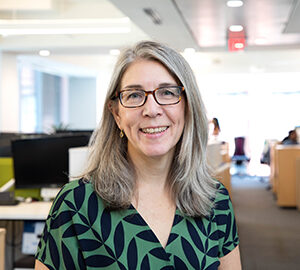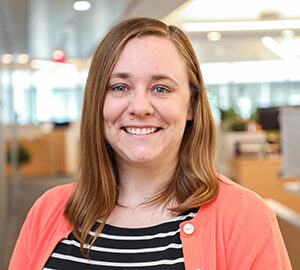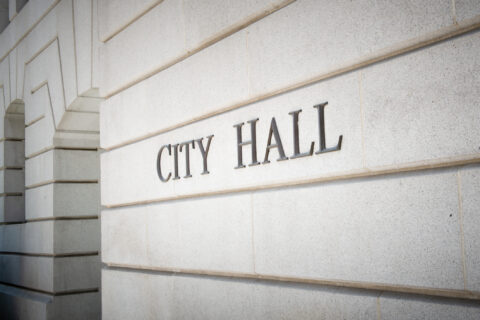Why are local leaders and philanthropists making investments in early childhood to build equitable communities?
The National League of Cities reached out to the City of Albuquerque Mayor and Program Officer at the W.K. Kellogg Foundation to ask why local leaders and philanthropists are making investments in early childhood to build equitable communities.
Mayor Tim Keller, Albuquerque, New Mexico
- Why infuse equity in early childhood outcomes within the City of Albuquerque? The COVID-19 pandemic has only made inequality challenges starker. That’s true in every city in the country right now, for too long there has been a reluctance to confront the reality that child development is essential not only to future outcomes and building safer communities but also to working families who depend on access to low-cost, high-quality opportunities. Parents are being asked to do the impossible: work full time and keep their children on track with virtual or otherwise adjusted schooling. We won’t know for some time yet how big a setback this is for the current generation of children in our communities, but it is certain to be significant and our goal at the City is to provide the scaffolding around these families now.
- What is one thing the City of Albuquerque is doing about it? Keeping kids safe and on the right path is a core value, so we were already committed to comprehensive high-quality early care and early learning programs that build on each child’s unique individual and family strengths, cultural background, languages, abilities, and experiences. When the pandemic struck, we weren’t starting from scratch, but ramping up our existing infrastructure to make sure we could continue to deliver equitable early care and early learning opportunities, especially to the most vulnerable families in our community and the essential workers who were putting their lives on the line to keep our city running.
- What’s next for the city? Our aim since day one has been to provide access to our youth opportunities to every kid in Albuquerque no matter what neighborhood they live in or barriers like transportation that they may face. We know that these youth programs, along with the young adult staff who start their careers working in them, change lives and help level the playing field to produce better outcomes for all, regardless of race, ethnicity, or socio-economic status. The pandemic has created a sense of urgency around child development and renewed political will to address these cracks in the system that we are seizing upon.
Sakinah P. Harrison, Program Officer, W.K. Kellogg Foundation:
- Why should philanthropists invest in infusing racial equity in early childhood outcomes across the country? The COVID-19 pandemic has forced the already-fragile childcare system to the brink of collapse and is exacerbating existing racial and ethnic inequities for parents, children and childcare providers throughout the U.S. I think about all the working parents who are also caring for their children at home, or who have lost jobs because they lost childcare. A recent survey in Mississippi found that 86% of parents who voluntarily leave their jobs do so when their children are two years old or younger – showing how child care for infants and toddlers is an area of greatest need. One of the many things this pandemic has revealed is the significance of early learning contributions childcare providers make in a child’s early life — and the critical role they play in a thriving, economically vital country.
- How is the foundation viewing local governance as part of the solution in infusing racial equity in early childhood outcomes? Local leaders play a critical role in achieving high-quality early childhood outcomes. For example, in New Mexico, the Kellogg Foundation supports advocates and communities to work in partnership with various governmental agencies to advance racial equity and maximize early childhood education resources. In Albuquerque, Mayor Keller created the City’s Office of Equity & Inclusion. As a result, there’s greater access to early childhood programs for immigrant and refugee communities. They provide interpretation services, acting as a liaison within the City government, so parents understand services available and the benefits they provide in getting kids ready for school. The success of the City’s efforts has rolled up to changes at the state level, where New Mexico is a leader with its establishment of an early childhood education and care department this past July.
- As elected officials and city staff respond to the COVID-19 pandemic and build their cities forward, what’s next for ensuring racial equity is infused in early childhood outcomes? According to a U.S. Chamber of Commerce Foundation report, almost half of the child care providers in the U.S. closed down during the shutdowns, and even upon reopening, a large majority reported a significant reduction in enrollments. Unfortunately, when childcare systems lack equitable structures, access, and financial stability, or— as we’ve seen during the pandemic—are strained to the brink of collapse, families, and communities suffer. Now is a time to collaborate, re-envision, reimagine, and rebuild childcare and workforce systems to support our essential workers and our youngest learners. Advancing racial equity in early learning requires us to come together, critically examine institutional and structural policies and practices that hold some children and families back. Now more than ever, we need to transform the childcare sector in a way that honors the essential workers and the identities of all children and families.
Join our newsletter
To learn more about how local leaders are working to ensure early childhood success across all communities.











